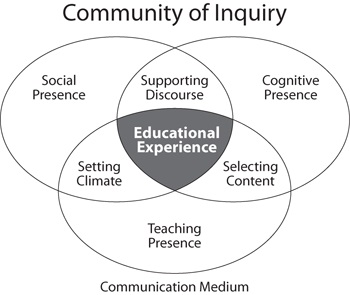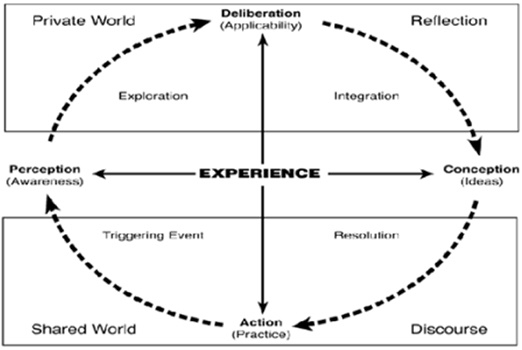The Community of Inquiry (CoI) framework was first proposed to guide research in online learning. It characterizes learning as a collaborative and constructivist process that takes place among a group of individuals who collaboratively engage in critical discourse and reflection to construct personal meaning and confirm mutual understanding. The framework suggests that a deep and meaningful learning experience is achieved through the development of three interdependent elements – social, cognitive, and teaching presence. (Garrison, Anderson & Archer, 2000)

Cognitive Presence, consisting of a series of phases (triggering event, exploration, integration, and resolution/application), is reflective of the purposeful nature of knowledge construction.

Teaching Presence, not to be confused with the rather limited notion of “teacher’s presence in class”, consists of “the design, facilitation, and direction of cognitive and social processes for the purpose of realizing personally meaningful and educationally worthwhile learning outcomes.”
Social Presence, as a construct, tries to compensate the often-criticized dystopia of a typical online learner, during the turn of the century, who interacted with a computer screen alone in a dark isolated corner, by positing a normative vision of a learner who identifies themselves as an active participant in a community and, through open communication and personal/affective interactions with others, further the learning goals shared by members of the community.
